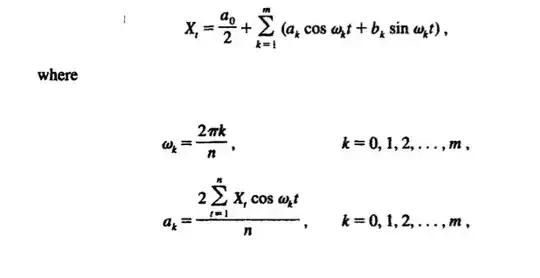I would like to find the pdf for the $n-1$ interarrival times $w$ of $n$ iid events from an exponential distribution of time constant $\tau$. Using the fact that the first event follows an exponential distribution of time constant $\tau/n$, and using memorylessness, I can show that the pdf for interarrival time $j$ is an exponential distribution of time constant $\tau/(n-j)$. In other words, for fixed $n$ and $j$, the distribution of waiting time $j$ follows an exponential distribution of time constant $\tau/(n-j)$ - I have simulated this and obtained consistent results.
However, I don't see how to get to the overall distribution of the interarrival times. In other words, for fixed $n$, what is the pdf of the distribution of all of the $w_k$, regardless of $j$?
I would have thought the pdf of $w$ is just the average of the pdfs of $w_i$, in other words a linear combination of exponentials, but I have tried some simulations, and the result looks more like a single exponential.
The application is I have experimental data coming from several realizations of $n$ events from the same exponential distribution, and I am trying to reproduce the overall distribution of interarrival times.
